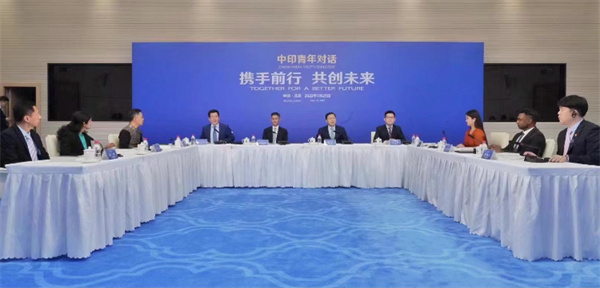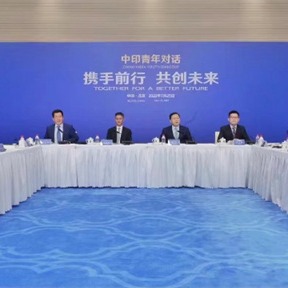China-India youth dialogue held to boost exchanges for a better future


When Xuanzang, the 7th-century Buddhist monk and scholar, left Xi'an, then called Chang'an as the imperial capital of the Tang Dynasty (618-907), to go to India, he was around 27. He embarked upon a journey of several years traveling along deserts, oases and mountains before arriving at the birthplace of Buddhism.
He was a middle-aged man when he returned to Chang'an, carrying with him sacred scriptures of Buddhism. Xuanzang's pilgrim, his extensive exchanges with people in India, and his devotion to translating sutras from Sanskrit into Chinese, as well as recording his travels, left a mark of historic significance in the relationship between the two old civilizations.
Exchanges between the young people of China and India have been vital to carry on the friendship and cooperation in various dimensions of the two countries.
A China-India Youth Dialog jointly organized by the CICG Center for Europe and Asia, China International Youth Exchange Center and Cheena Bhavana of Visva-Bharati University was held in Beijing on Monday.
The event was attended by representatives of both countries and from different social sectors, in-person and online, who shared their experiences and opinions on deepening interaction between the youths of the two countries in a new era.



































